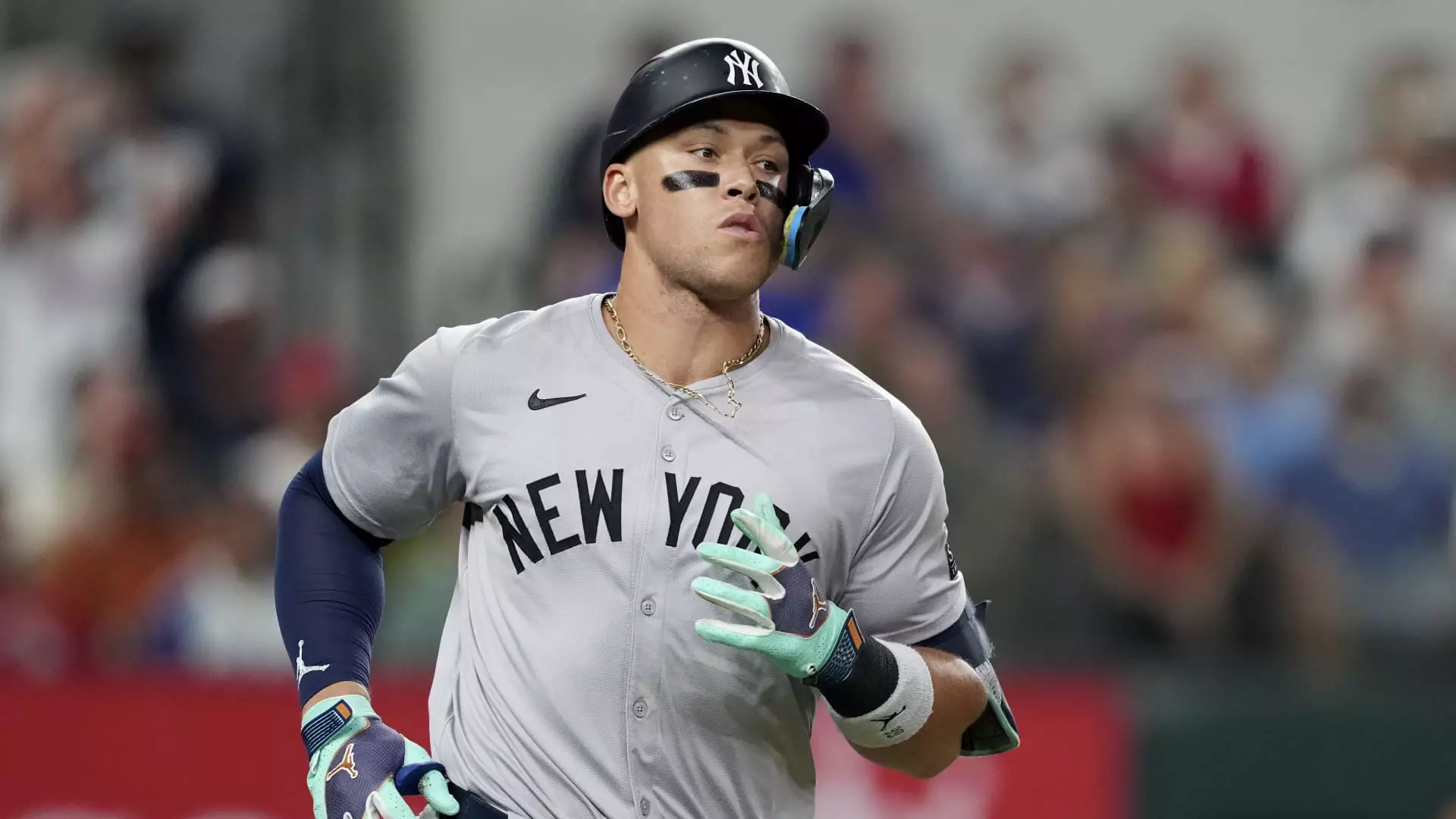Major League Baseball (MLB) is experiencing a surge in postseason viewership, stirring excitement across the league and among fans. The recent matchups during the National League Championship Series (NLCS) and the American League Championship Series (ALCS) have drawn impressive audience numbers, signaling a renewed interest in baseball. The NLCS opener between the New York Mets and the Los Angeles Dodgers attracted an average of 8.26 million viewers—marking it as the most-watched League Championship Series game since 2009. Similarly, the ALCS’s first game featuring the New York Yankees and the Cleveland Guardians recorded an increase of 4% in viewers from the previous year, with 3.9 million tuning in.
This revival in viewership is particularly striking given its alignment with popular NFL programming. Competing against “Sunday Night Football” and “Monday Night Football”—which featured all three New York NFL teams in primetime slots—testifies to baseball’s growing dominance in appealing to a diverse audience. In the context of viewership trends, these figures are a buoyant sign for MLB, especially following the triumphs seen in the League Division Series (LDS), which saw an average of three million viewers—over 20% higher than the previous season.
Despite recent success, Major League Baseball has grappled with perceptions about its relevance among younger fans. For years, critics have pointed out that baseball’s slow-paced nature doesn’t resonate with younger generations known for their preference for quick, engaging content. As attention spans shorten, sports broadcasters have increasingly turned to highlights and short clips to maintain viewership among these audiences.
Last season’s World Series garnered the lowest ratings in history, an unpleasant reminder of MLB’s struggles to connect with the broader public. The lack of universal appeal among the competing teams—such as the Texas Rangers and Arizona Diamondbacks—may have detracted from national interest. Nevertheless, the 2024 regular season appears more promising, marked by increases in attendance, engagement, and overall viewership. This revitalization can be attributed, in part, to initiatives like the pitch clock, which reduces game duration and enhances gameplay flow.
Critical to this resurgence has been MLB’s progressive approach to rule changes aimed at amplifying game action. The introduction of larger bases and restrictions on defensive shifts have made games more dynamic, attracting not only long-time fans but also new audiences eager for an engaging sporting experience. These adjustments reflect a strategic pivot designed to foster excitement and retain viewership amid growing global competition for entertainment.
Additionally, MLB has wisely showcased its generational stars—players like Shohei Ohtani and Aaron Judge have become cornerstones for their respective franchises, the Dodgers and Yankees. Their presence significantly raises the stakes for the potential World Series matchup between these legendary teams, each steeped in rich histories. Todd Boehly, CEO of Eldridge Industries and owner of the Dodgers, remarked on the significance of such a high-profile series. The notion of a rivalry heightened by star players adds depth and intrigue to the sport, potentially capturing the imagination of fans and revitalizing interest in baseball as a whole.
The road ahead for MLB appears promising, as both the Mets and Guardians also present their unique narratives worth following. The Mets’ impressive turnaround since June and the Guardians’ resurgence in September, driven by star performer Jose Ramirez, further enrich the storytelling elements of this season’s playoffs. As of now, the Yankees carry a 2-0 lead over the Guardians, while the NLCS stands tied at 1-1, setting the stage for riveting matchups in the upcoming games.
While MLB has confronted significant challenges regarding viewer engagement and cultural relevance, the recent championship series and rule changes reflect a powerful resurgence. By leveraging innovative approaches and celebrating its star players, baseball seems well positioned to reclaim its status as America’s pastime, fostering an environment that excites both veteran enthusiasts and newer fans alike. As the postseason unfolds and narratives develop, the league’s focus on entertainment and engagement could shape the future of baseball for years to come.

Excelente información
Gracias